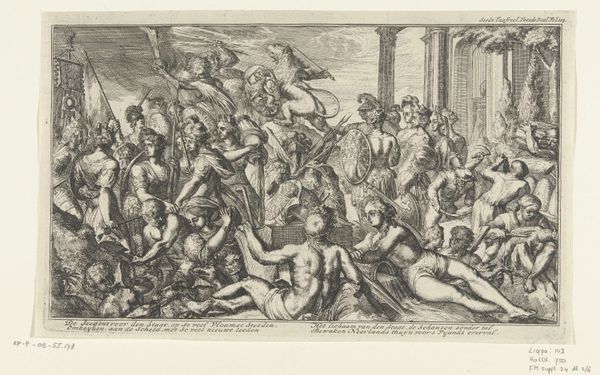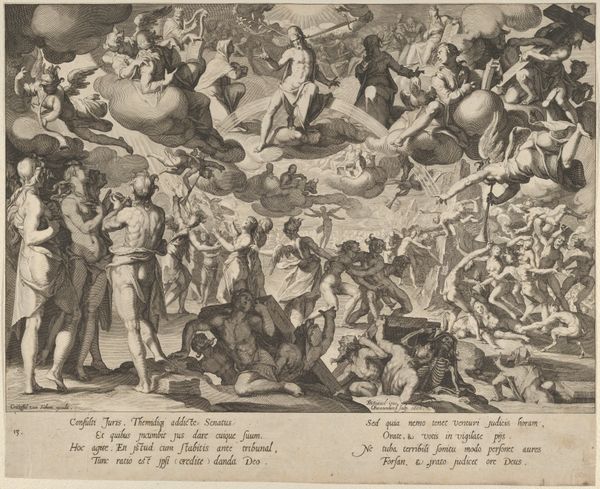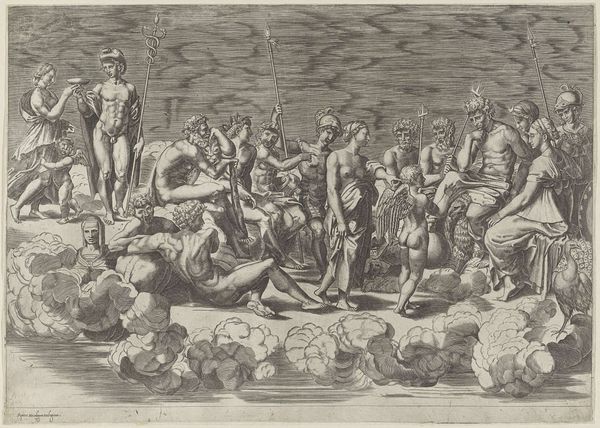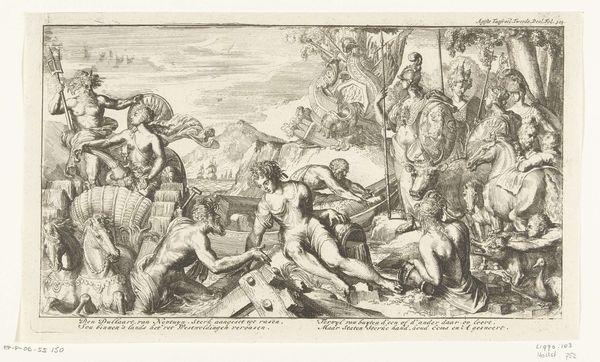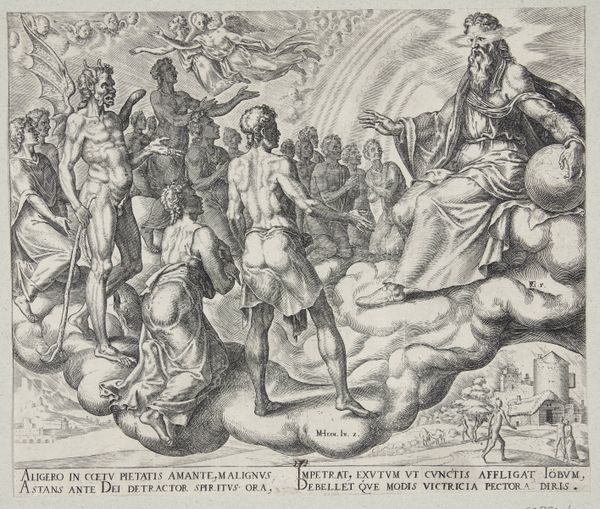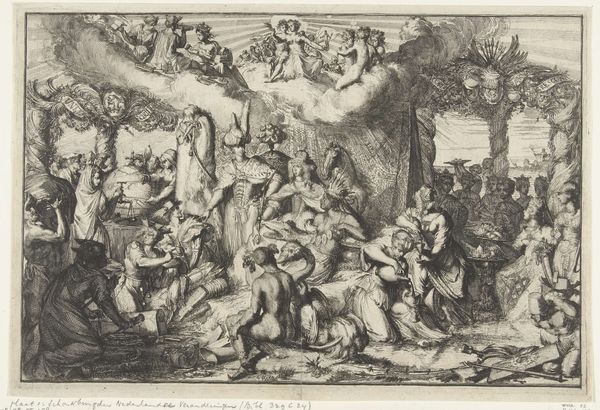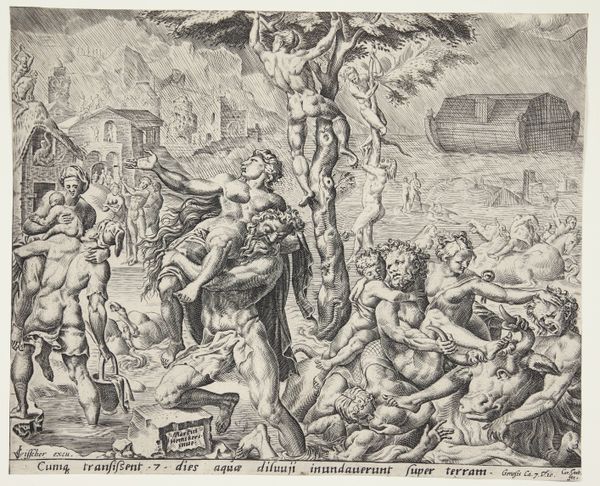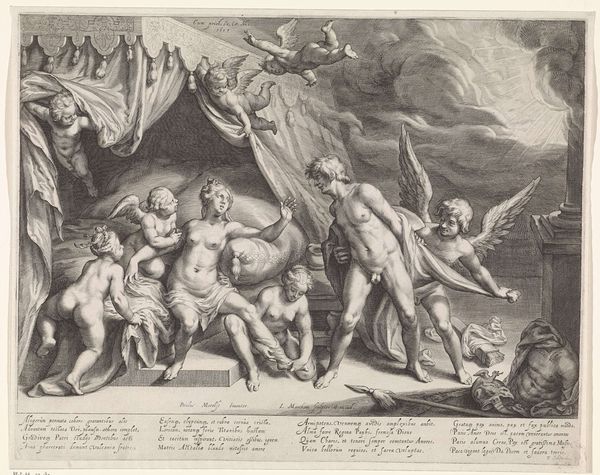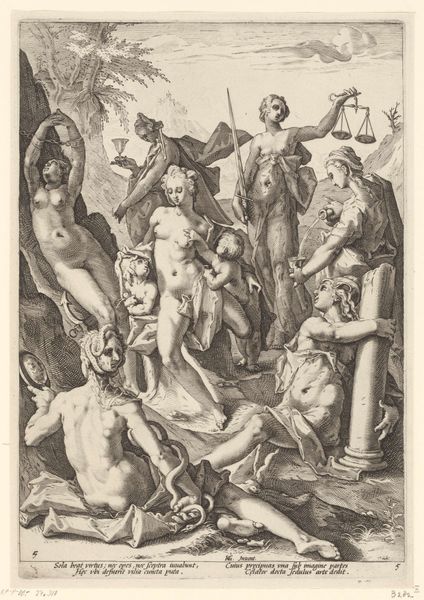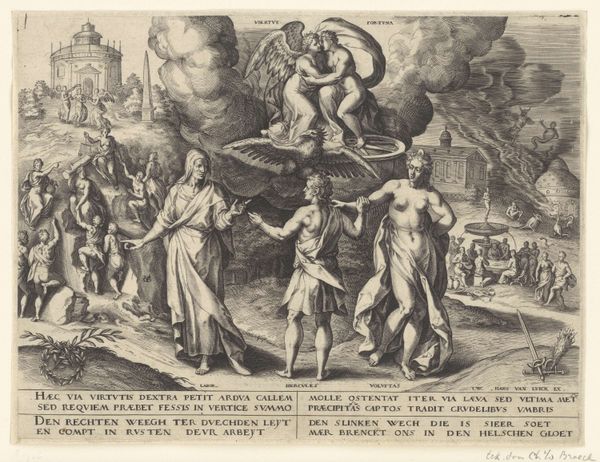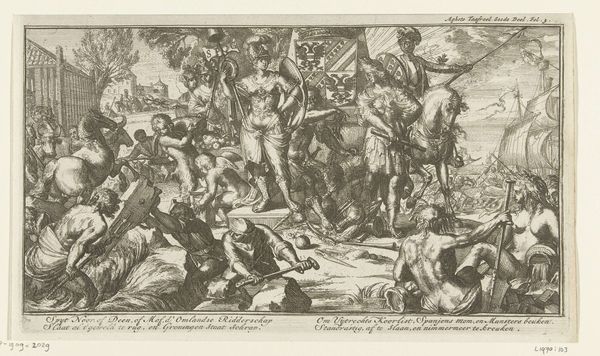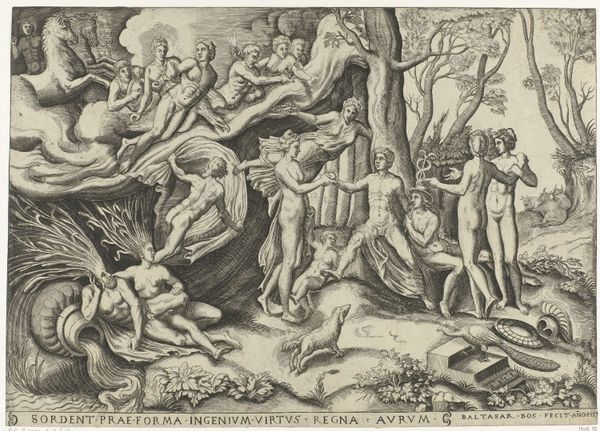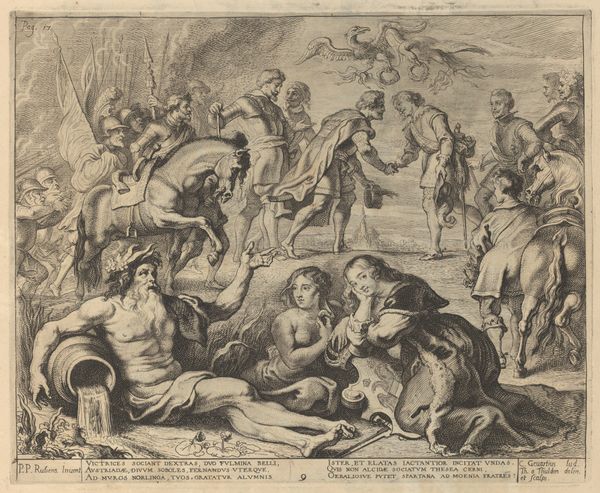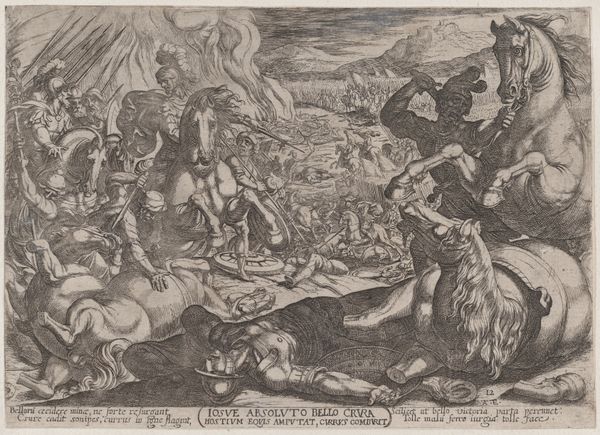
Psyche wordt door Mercurius naar Olympus gebracht 1580 - 1626
0:00
0:00
bartholomeuswillemszdolendo
Rijksmuseum
print, engraving
#
allegory
# print
#
landscape
#
mannerism
#
figuration
#
history-painting
#
nude
#
engraving
Dimensions: width 450 mm, height 644 mm
Copyright: Rijks Museum: Open Domain
Curator: This engraving, dating sometime between 1580 and 1626, is entitled "Psyche wordt door Mercurius naar Olympus gebracht," or, "Psyche Brought to Olympus by Mercury," created by Bartholomeus Willemsz. Dolendo. Editor: Wow, it's… busy! A swirling cloud of classical figures. A bit chaotic, even, but undeniably arresting. All those nudes definitely command your attention. Curator: Indeed! Mannerism thrived on such dramatic compositions. Consider Mercury, the messenger god, escorting Psyche to Olympus. We see the culmination of Psyche's journey: her acceptance amongst the gods, immortality achieved through love. But notice the city depicted far below; a symbol, perhaps, of the mortal realm she leaves behind. Editor: It strikes me as a mash-up, doesn’t it? Like the artist threw every mythological character into a blender, hit "high," and this is what poured out. And the engraving, with its dense lines, adds to that swirling sense of constant movement, an emotional turbulence too, like the turmoil of love. Curator: You've picked up on key features of Mannerist prints. There's a deliberate tension, an artificiality that sets it apart from Renaissance ideals of balance. Note the psychological tension achieved by elongated bodies and contorted poses: emblems of heightened emotion. The ascent, visualized through elevation, points to spiritual aspiration and divine favor. Editor: But, isn't it ironic? The figures almost seem… detached. They're floating on their clouds of self-importance, elevated physically but not emotionally. I almost feel bad for Psyche. Like, "Welcome to eternity. Hope you like aloof people and permanent judgment." Curator: Such complexity of emotions speaks volumes for its enduring power. These symbols, pulled from classical mythology, tapped into universal experiences and longings. It's a reminder of how old stories shape new meanings in a changing world. Editor: Maybe that's the real trick of Mannerism, though. It's like a coded language. You *think* you're seeing beautiful gods and goddesses, but actually, it’s about all the complicated messy bits inside our own heads. Anyway, I appreciate getting to know a piece that definitely offers a full mind-trip.
Comments
No comments
Be the first to comment and join the conversation on the ultimate creative platform.
